
Mechanical Foundations Professional Development Now Live
By Jesse Flot
Over the last 10 years, the Carnegie Mellon Robotics Academy has had the opportunity to train over 3,500 educators in how to best implement robotics in their classrooms, clubs, and competition teams. Educators leave training better prepared to not only troubleshoot robots, but also use them to reach meaningful learning outcomes in computational thinking, coding, and mathematics with their students. We are grateful that so many schools and organizations have trusted us with the privilege of working with their educators.
We are delighted to continue to support educators with a brand new training course, certification, and format, Mechanical Foundations Professional Development available through Anytime Online Training.
In this training course, educators learn how to use our Mechanical Foundations curriculum and the VEX V5 robotics system to teach the mechanical competencies real-world robotics technicians use every day. Mechanical Foundations focuses on concepts such as structural design, weight distribution, drivetrains, fastening, the relationship between speed and torque, and alternate methods of transferring motion such as linear slides and belts and pulleys.
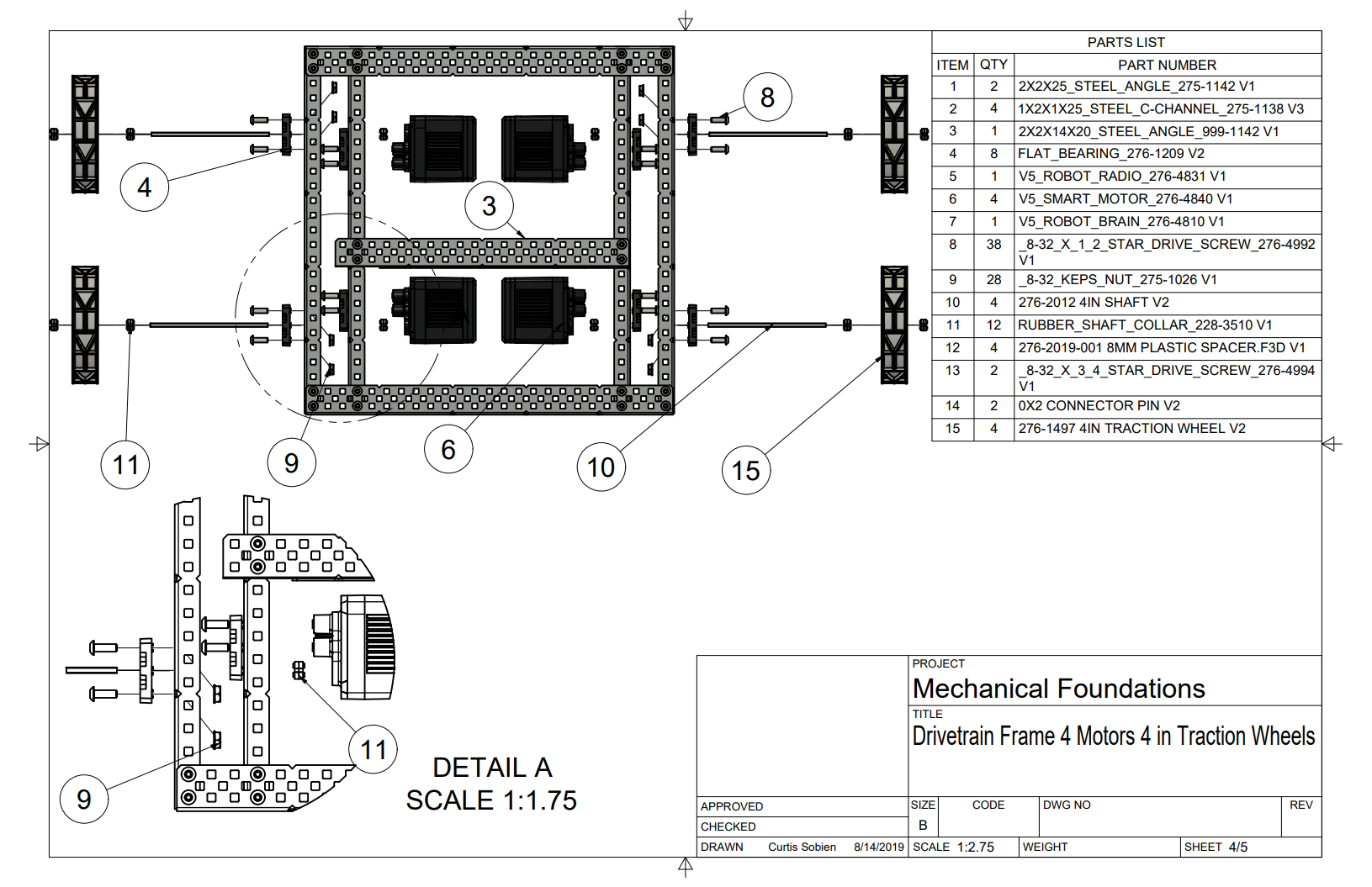 |
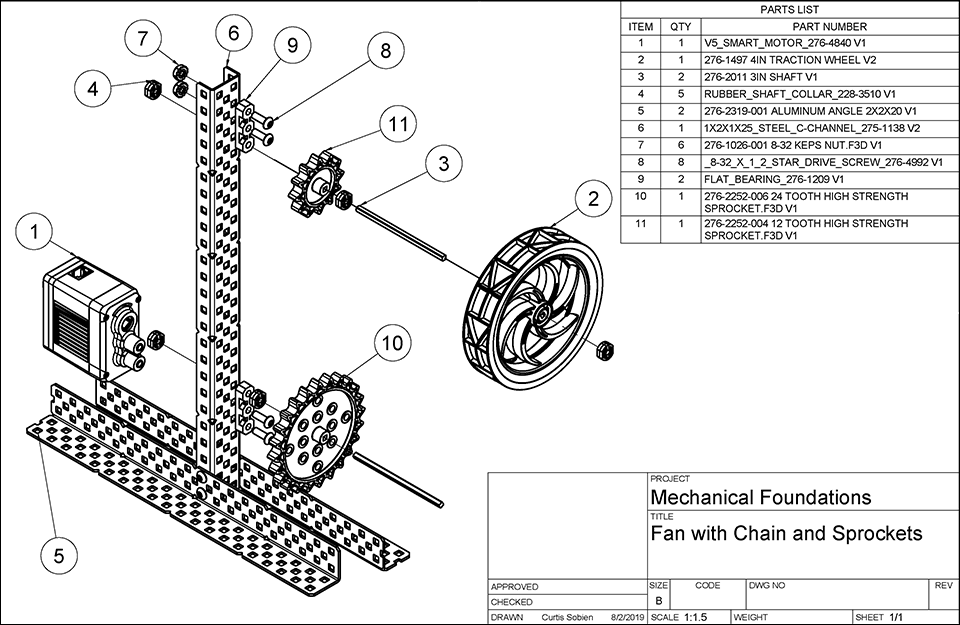 |
It is one of five courses developed as part of the Smart Manufacturing and Advanced Robotics Training (SMART) Project. It is the perfect complement to our (typically) coding-focused training courses.
The demand for affordable, quality robotics training is global, and no single time slot meets the needs of all educators. That is why we are providing Mechanical Foundations in the new Anytime Online Training format. Educators can take the course from anywhere in the world and at their own pace, but still with support and guidance from our highly qualified instructors. Anytime Online classes feature a hybrid learning model where participants receive just-in-time instructional support as they work through course content in our CS2N learning management system.
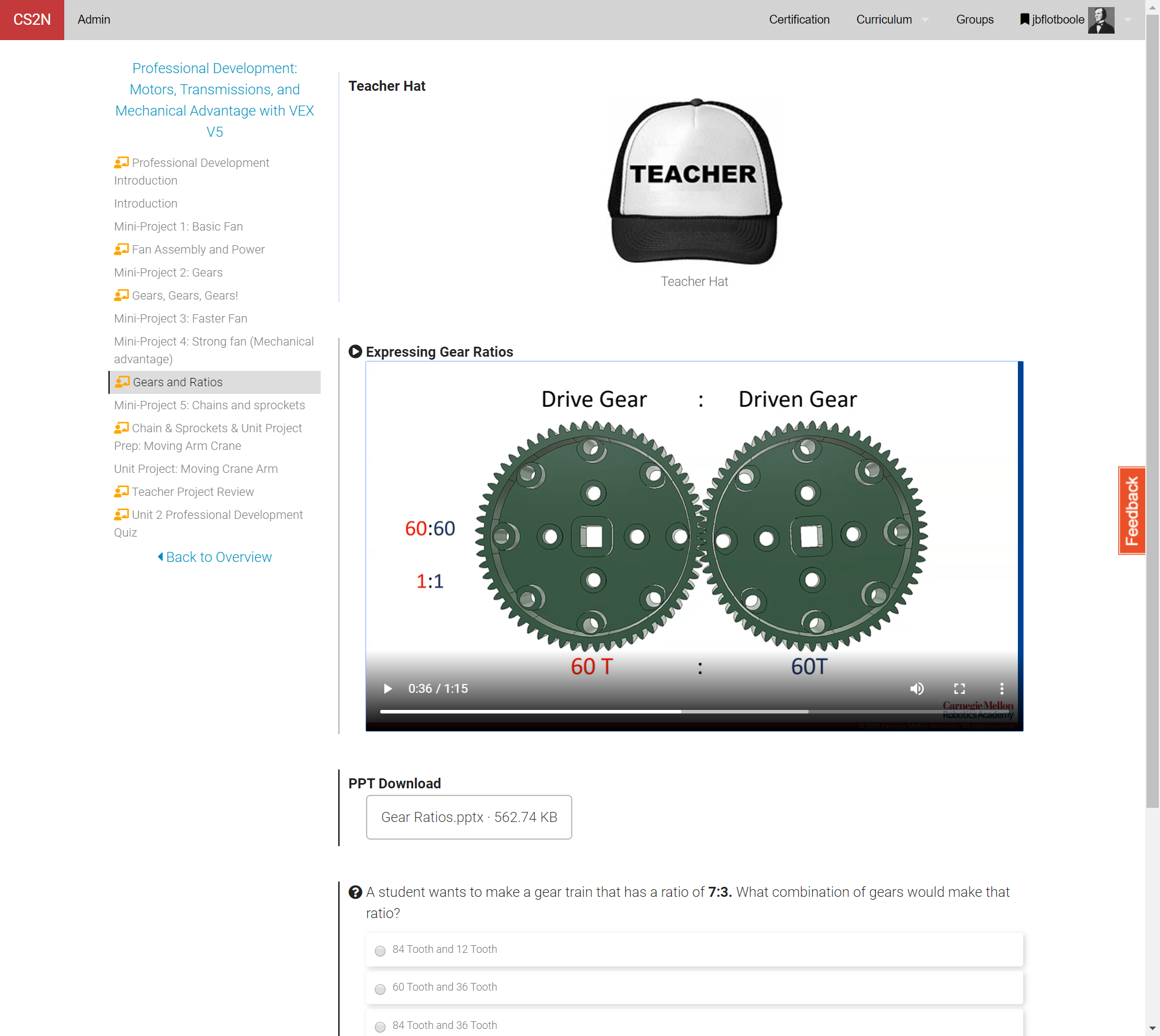
We ask educators to "put on their student hats" to engage with course materials and build their content knowledge, and then switch on their "teacher hats" to understand how to successfully implement course topics with students. All participants are paired with one of our instructors for any and all additional support needed throughout the course.

The Mechanical Foundations Professional Development prepares educators to reach the target Knowledge, Skills, and Attitudes across all 3 units of Mechanical Foundations:
Unit 1: Strength, Stability, and Balance This unit introduces how to create simple, durable structural foundations essential for any robotics system. We begin by identifying important parts, tools, and procedures, and by creating examples of some simple structures. As the unit project, you will create a reinforced crane to demonstrate your understanding of simple structural design.
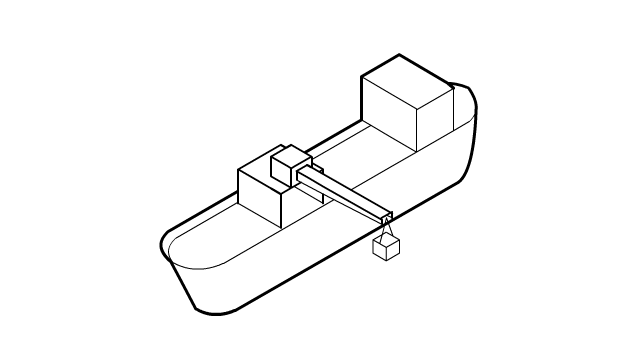
Unit 2: Transmissions and Mechanical Advantage Transmissions work alongside motors to allow systems to deliver increased Torque or Speed. In this unit, we explore several approaches to create Mechanical Advantage. As the unit project, you will develop an arm for the crane which must be able to move a heavy load.
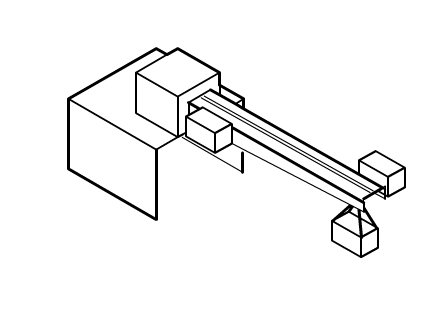
Unit 3: Drivetrains Choosing an appropriate drivetrain depends on the task that the robot needs to accomplish. The most basic drivetrain for a robot usually consists of a chassis, motors that are attached to the chassis, and wheels that are attached to the motor. In this unit, you will build several different examples of drivetrains. As the unit project, you will design a custom drivetrain that can climb obstacles.

As educators work through the course, they have the opportunity to upload evidence of their own work (both student assignments and pedagogical assignments) and complete a certification exam. Their evidence and exam performance is reviewed by the Carnegie Mellon Robotics Academy, allowing them to earn the Mechanical Foundations Professional Development Certification.
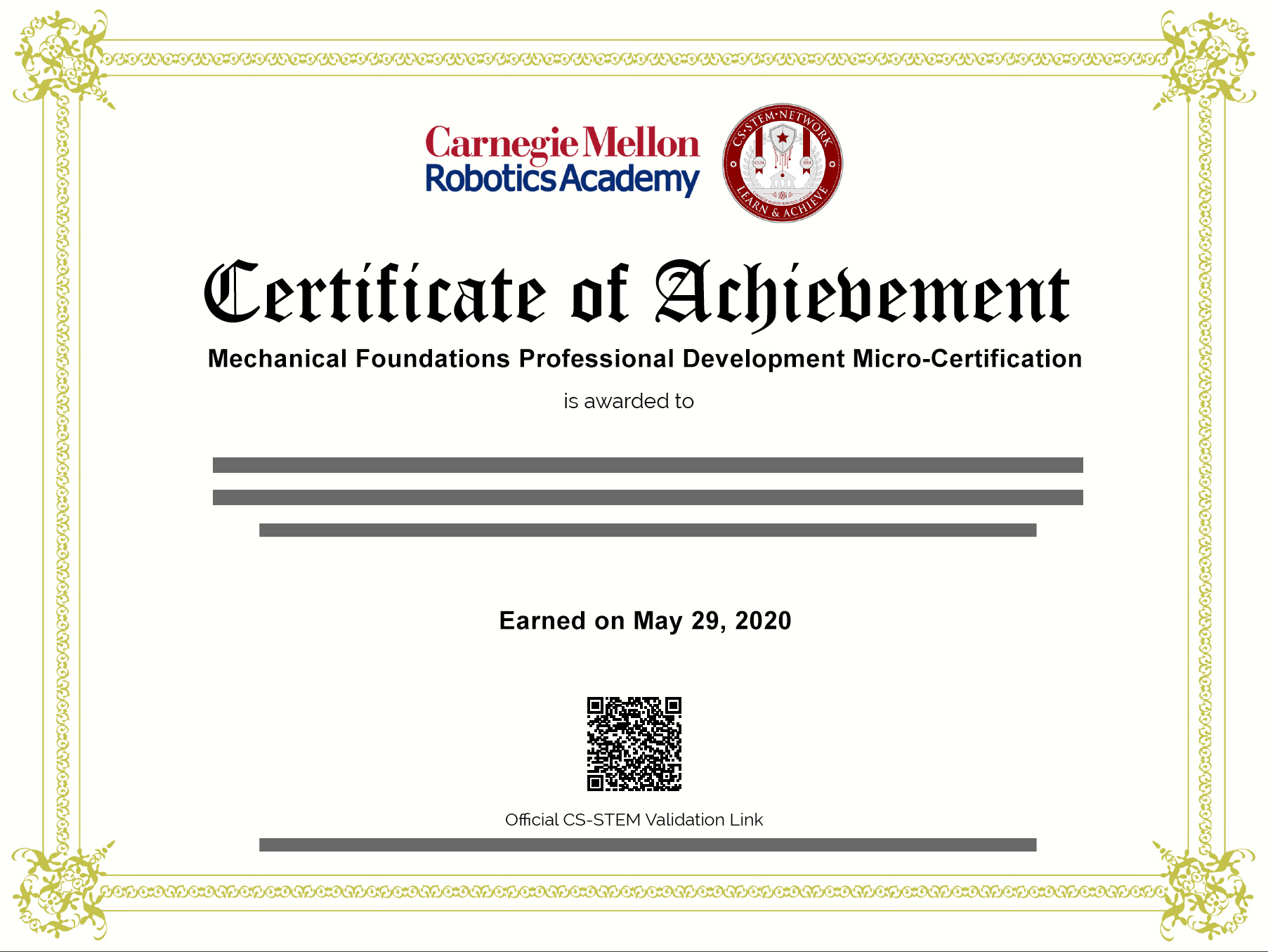
Educators can enroll in Mechanical Foundations Professional Development for US $299 through the CMU Bookstore, or via Purchase Order. This cost includes online access to CS2N, Carnegie Mellon Robotics Academy Training Materials, support from the Robotics Academy instructors, and certification. To follow along with this course, educators will need access to VEX V5 Classroom Super Kit and some inexpensive classroom materials (not included).
Visit the Mechanical Foundations Professional Development page for more information, and feel free to ask any questions to cmra@nrec.ri.cmu.edu.